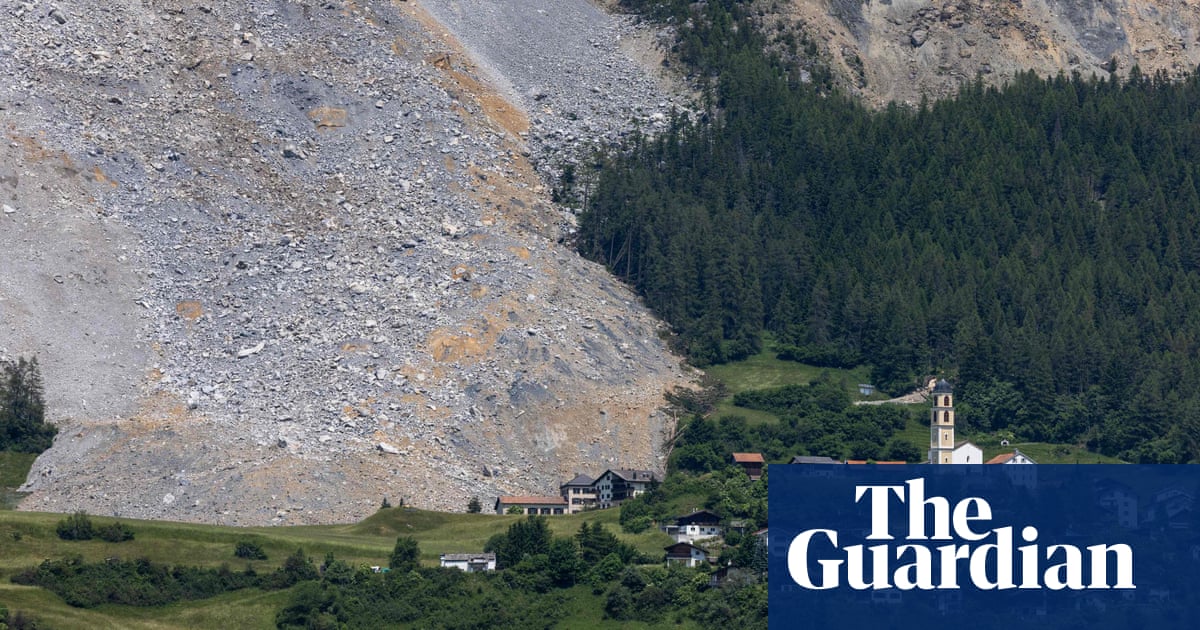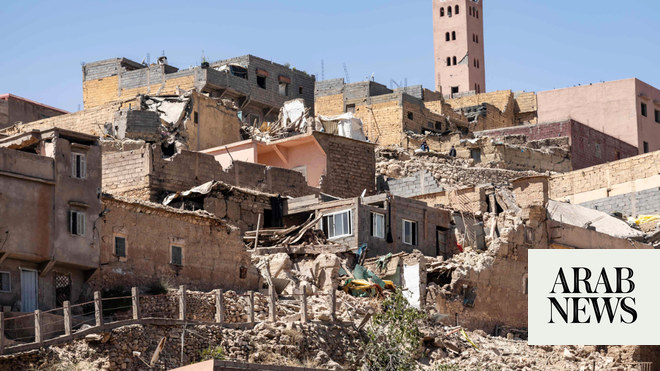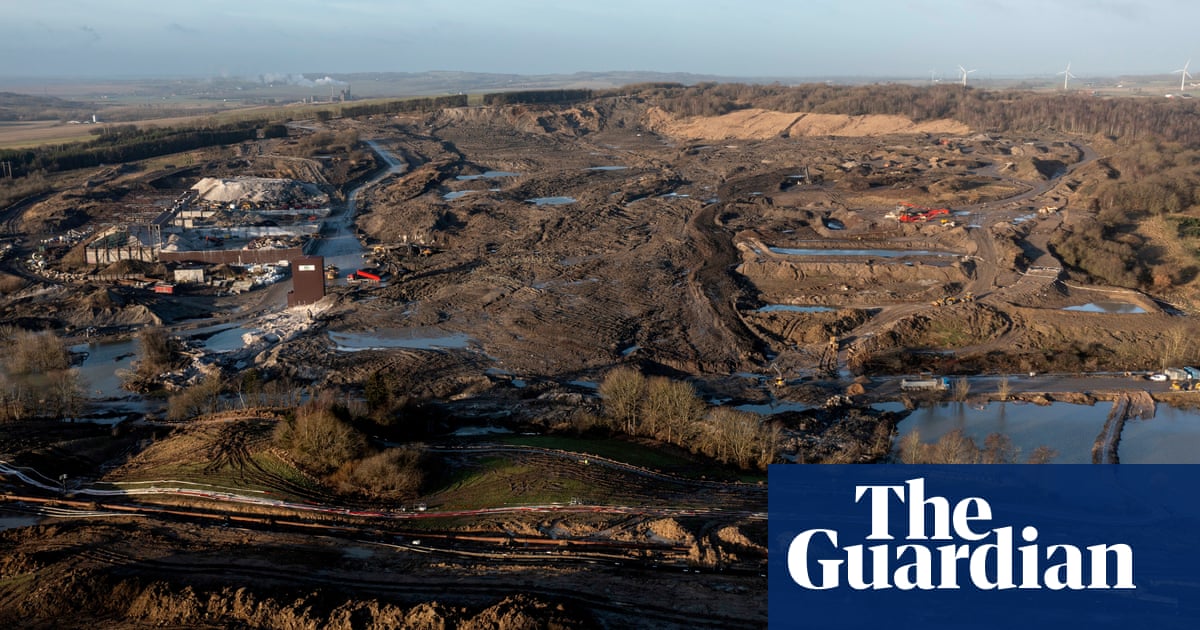
A large rockfall has narrowly missed a Swiss mountain village whose inhabitants were evacuated last month over fears of a landslide.
The bulk of the rock, which geologists had warned was in danger of falling directly onto the village of Brienz, crashed to the ground on Thursday night, authorities in the Albula community in the canton of Graubünden said on Twitter.
The rock and scree missed the empty hamlet “by a hair”, local authorities said in a statement. “According to preliminary information, a large part of Insel collapsed rapidly. There is no indication of damage in the village, with the rocks mass having stopped just in front of the village,” it said.
Rubble from the fallen rocks stood up to 12 metres high and the road was completely buried under the debris, Christian Gartmann, a spokesman for the community, said. “We are working on the assumption that this was not yet the end of it,” he told local media.
A helicopter was expected to fly over the area on Friday to assess whether the village had in fact remained intact. The 100 residents were said to be particularly anxious to know if damage had been done to their homes and the 16th-century church, St Calixtus, specifically its gothic winged altar piece. They hope to return if the area is given the all clear.
“In such cases you cannot exclude the fact that blocks of rock crash into other blocks creating stone splinters from the size of a fist to a football,” Gartmann said. These shards of rock often have the force of a cannon ball, which can “shoot through the air and can penetrate window panes or other building parts”. So far though, Brienz appeared to have had a narrow escape, he told the broadcaster SWR. “It has been very lucky.”
The area had been declared a danger zone of the highest level possible, forcing the closure of two roads and a train line. Risk assessors also deemed the start of the 6th leg of the Tour de Suisse bike race from Le Pont to Chur to be too close to the danger zone on Friday, and ordered its relocation from Chur to Oberwil-Lieli in Aargau canton instead. The loss of a 40-mile (60-kilometre) section of the race drew the ire of some of the riders.
Experts have had their eyes on the mountain above Brienz for centuries, but observers have watched with increasing alarm in the last 20 years as conditions worsened.
The summit of a mountain in Austria also crashed to the ground earlier this week. Scientists said global heating had led to the melting of permafrost, which acts like an adhesive holding the massif together.
The shifting conditions above Brienz, however, were the result of natural erosion, experts said.












